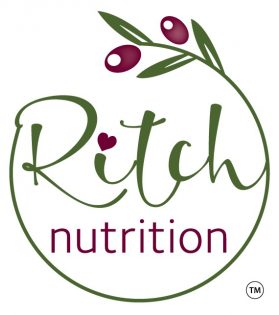Did you know that the average lifespan of a woman in the UK is 81 years old?
It’s an impressive figure when you consider the progress we’ve made in medicine, public health, and overall living conditions. But here's the worrying part: the average healthspan - the number of years lived in good health, free from chronic disease and disability - is just 63 years old.
That’s right. On average, women in the UK spend 18 years of their lives dealing with health challenges. Eighteen years! That’s nearly two decades of life often dominated by conditions like heart disease (the leading cause of death in women), type 2 diabetes, obesity, cancer, and dementia.
While it may seem inevitable, here’s the thing: many of these conditions are largely preventable because they’re influenced by lifestyle choices.
As a 61-year-old woman myself, these statistics hit close to home. They made me reflect on my own health and what I want my 80s - and beyond - to look like. Do I want to be confined by the limitations of chronic illness, or do I want to be thriving, enjoying life to the fullest, and still feeling energetic and capable? For me, the choice is clear: I’m opting for healthspan over lifespan.
What about you?
Healthspan Over Lifespan: The Choice Is Yours
The good news is that the quality of your later years isn’t just determined by luck or genetics. While your genes play a role, the actions you take today - at any age—can significantly impact your health in the future. The earlier you start, the better, but it’s never too late to make positive changes. Wherever you’re starting from on your health and wellness journey, you have the power to shape what your 80s (and beyond) will look like.
So, how can you shift the odds in your favour and extend your healthspan?
By focusing on the five key pillars of health: nutrition, movement, stress management, sleep, and social connection.
Let’s break them down.
1. Good Nutrition
Your body is your vehicle for life, and what you fuel it with matters. Focus on eating real, whole foods and minimising ultra-processed “fake” foods that are often high in sugar, unhealthy fats, and additives.
Aim for a diet rich in:
Quality protein: Think meat, fish, eggs, and cheese, which support muscle maintenance and repair as you age.
Healthy fats: Include sources like avocados, olive oil, nuts and oily fish to support brain health and reduce inflammation.
Plant-based foods: Vegetables, fruits, nuts, seeds, and legumes provide fibre, vitamins, and antioxidants that your body needs to function optimally.
The goal isn’t perfection - it’s progress. Start by adding more colourful vegetables to your meals, cooking at home more often, and cutting back on sugary snacks. Small changes all add up!
2. Keep Moving
Physical activity is a cornerstone of healthy aging. Regular movement not only helps you maintain a healthy weight but also keeps your muscles and bones strong, your heart healthy, and your mind sharp.
It’s about staying independent, agile, and capable well into your later years.
Find activities you enjoy, whether it’s walking, dancing, swimming, or strength training.
Consistency is key. Even 20–30 minutes of movement a day can make a big difference.
Bonus points for incorporating strength training exercises to combat muscle loss and support bone density.
3. Manage Stress
Chronic stress is a silent killer. It can contribute to inflammation, disrupt your sleep, and negatively impact your mental well-being.
Finding effective ways to manage stress is crucial for both your short-term and long-term health.
Consider practices like mindfulness, yoga, or even just spending time in nature. The key is to find what works for you - whether it’s journaling, meditating, or unwinding with a good book.
4. Prioritise Sleep
Sleep is not a luxury; it’s a necessity. Without adequate rest, your body can’t repair itself, and your risk of chronic illness increases dramatically. Poor sleep has been linked to obesity, heart disease, diabetes and even dementia.
Aim for 7–9 hours of quality sleep per night. Create a bedtime routine that promotes relaxation, limit screen time before bed, and ensure your sleep environment is comfortable and free of distractions.
5. Stay Social
Humans are social creatures, and our well-being thrives on connection.
People with strong social ties tend to live longer, healthier lives. Loneliness and social isolation, on the other hand, are linked to a host of health problems, including depression and cognitive decline.
Make time to nurture meaningful relationships, whether it’s with family, friends, or your community. Joining clubs, volunteering, or simply scheduling regular catch-ups with loved ones can do wonders for your sense of purpose and happiness.
Don’t Know Where to Start?
Feeling overwhelmed by all the advice?
You don’t have to do it all at once. Start with just one area - maybe it’s improving your diet, taking a daily walk, or prioritising sleep - and build from there.
Progress, not perfection, is the goal.
So, I’ll leave you with this question: What do YOU want your 80s to look like?
Remember that it's the actions you take today that are the foundation for the vibrant, healthy life you deserve in the years ahead.

